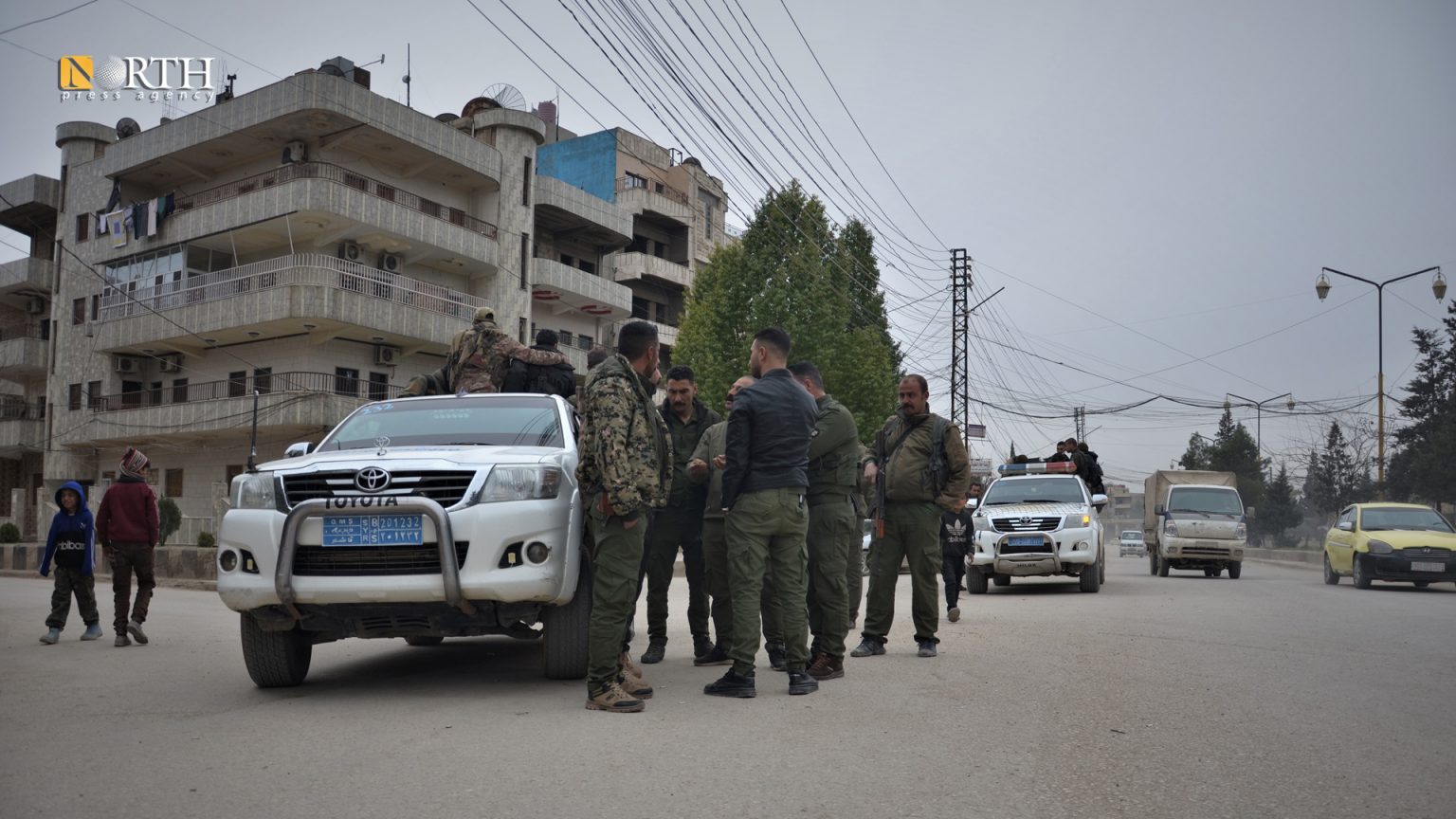QAMISHLI, Syria (North Press) – Arab and Kurdish tribal sheikhs in Syria’s Jazira region in the country’s northeast believe that residents of the area and the Autonomous Administration of North and East Syria (AANES) managed again to reject attempts to create sedition following security tensions between AANES and Syrian government.
Rural and tribal characteristics are strong Jazira, where tribes form the scattered between the Turkish border in the north and the Iraqi border in the south.
Tribal issue
A tribal leader from the well-known Kurdish Mirsiniye Mirsiniye tribe, Haj Akram Delli, said, “The regime has lost all its cards in Jazira, so it is trying to play the tribal card and exploit national affiliation through accusations regarding the submission of Arab tribes to Kurdish authority.”
In late January, the cities of Qamishli and Hasakah witnessed security tension between government forces and the Internal Security Forces (Asayish) accompanied by demonstrations, detentions, and mutual shooting.
Official media close to the Damascus government, and even in the Syrian opposition, broadcasted the event as an Arab tribal uprising against Syrian Democratic Forces (SDF) and AANES.
“They demonstrated in Hasakah under the title of a peaceful demonstration, but in the video footage it was clear that participants were armed,” Delli stated.
“AANES was flexible and practiced self-control, as it was not dragged towards the regime’s goal,” he added.
Previous endeavors
“Since the first spark of the Syrian crisis, the Syrian regime has been trying to sow Arab-Kurdish sedition in Jazira; however, it has not become a reality so far,” Delli added.
The government “tried to sow sectarian discord n 2004 in Qamishli, but most of the Arab tribes that coexisted with the Kurds rejected that,” according to him.
Prominent officials of the AANES accused Syrian government officials of trying “to sow discord between Kurds and Arabs in Hasakah.”
Asayish issued a statement in which they held Syrian government officials responsible for the tensions taking place in the area.
Two weeks ago, regime governor of Hasakah Ghassan Khalil called on pro-government Arab tribal heads and sheikhs to participate in a meeting in which security officials and the police chief in Hasakah took part.
A tribal source who participated in the meeting revealed to North Press, provided that he remained unnamed, that Khalil asked them to demonstrate against the Syrian Democratic Forces (SDF), which he called “Kurdish forces,” and asked, “How can Arabs be ruled by Kurds?”
Khalil was one of the officers who oversaw repression and persecution of anti-government individuals during the Syrian war, according to a report by Human Rights Watch in 2011.
Local calls
“AANES was responsive to the tribal calls to avoid the sedition during the tensions that were taking place in Hasakah and Qamishli,” Jabour Arab clan council head in Jazira Fawaz al-Zawuba’ said.
Al-Zawuba’ was a member of the delegation that was recently formed of tribal sheikhs and heads to call on the military and security leaders to end the security tension.
“SDF leaders and Asayish had positive positions regarding our calls to end the tension in Hasakah and Qamishli,” he said.
He pointed out attempts to sow tribal and sectarian discord since 2011, “Kurdish and Arab clans joined together during the security chaos and [power] vacuum, so how can they sow sedition now in the light of the coexistence, stability, safety, and security?”
“Discord between us collapsed a long time ago,” he said.

